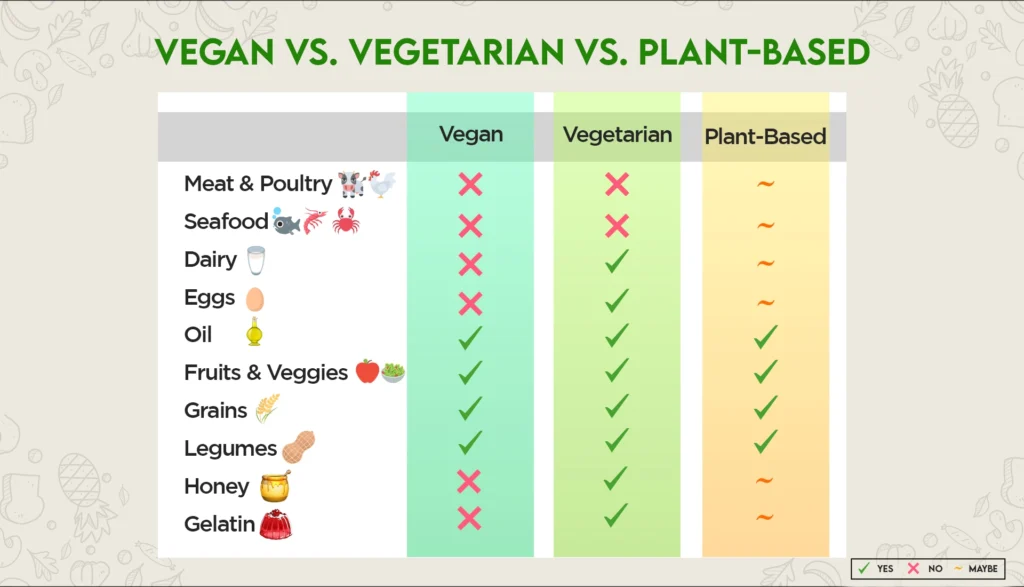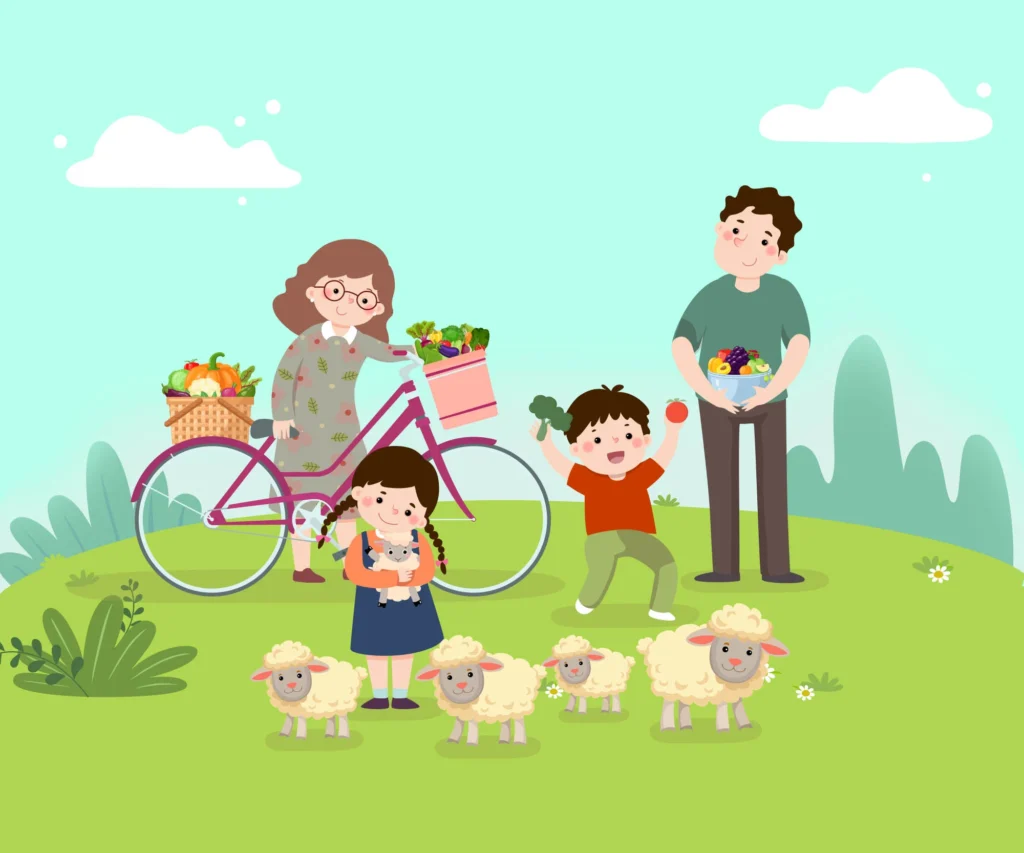Veganism arises from a belief structure that excludes any form of cruelty towards animals. It does so by promoting animal-free alternatives for food, clothing, or any other purpose. This lifestyle advocates the well-being of all and resorts to a plant-only diet. This diet includes legumes, pulses, seeds, grains, nuts, vegetable oils, fruits, and vegetables. However, a vegan lifestyle goes way beyond animal rights. Let’s look at the ways in which veganism stands out as a life choice.
A true vegan may also boycott inedible animal products such as wool, leather, silk, fur, pianos which have ivory keys, pearls, and animal-tested items (like certain brands of detergents, makeup, and tobacco), some tattoo inks (the dyes in them contain charcoal, which is burnt animal bones), and beeswax. Moreover, the vegan way of life offers a potent way to shrink carbon footprints in regard to climate change.
How is veganism different from vegetarianism?
The primary distinction between veganism and vegetarianism is the acceptance of dairy products by the latter. Interestingly, the difference between vegan and plant-based (plant-focused or plant-forward) diets may be less familiar. The latter has more flexible restrictions that allow the occasional consumption of dairy or lean (animal) protein. In a typical plant-based diet, the focus is more on the natural state of the food that favours unprocessed or less processed ingredients. It aims to reduce the frequency and portion size rather than completely dismissing animal products.
However, a typical vegan diet excludes all meat and animal products (meat, poultry, fish, seafood, dairy, and eggs). In contrast, vegetarians do consume byproducts that do not involve the slaughter of animals. These include eggs, dairy products (such as milk, cheese, and yoghurt), and honey.
Misconceptions about vegan nutrition
More often than not, vegan diets face criticism for not being nutritionally fulfilling and wholesome. Vegan nutritionists have tried to break this misconception by addressing a few questions that generally come up.
- The first and most commonly heard misconception is that vegan diets lack protein. However, food products like tofu, tempeh, and edamame are rich in protein and contribute eight out of the nine amino acids each. Studies also show how a wide selection of plant sources provide protein requirements, along with a supplement or two, for the human body.
- Another concern revolves around Omega-3 fatty acid, which is crucial for the healthy functioning of the brain and heart. Since the most common source of omega-3 fatty acid is fish, it is assumed that any vegan substitute will not be able to suffice. To break that misconception, fish actually source their omega-3 from the algae they consume, and they are not omega-3 providers by themselves. Plant sources like walnuts, flaxseed, chia seeds, etc., are rich sources of omega-3. This makes it possible to eliminate the animal source and retain the nourishment.
- However, it is true that vitamins like D and B12 cannot be found in abundance in vegan foods, for which supplements are the answer, along with exposure to the morning sun and fortified non-dairy milk.

Reasons people turn vegan
Trends like #30DayVeganChallenge, #TheVeganWeightLossChallenge, and so on, are just as fleeting as they are popular. Non-vegans flaunt these attempts for the sake of the experience or a short-term goal. Vegans for life, however, usually claim one of the following reasons as their ultimate turning point.
- Animal cruelty is the foremost reason people switch to veganism. Vegans are the strongest neutralisers of food gas emissions. A study reveals greenhouse gas could be brought down by three-fourths if everyone in the world went vegan. It also estimates that the world hunger situation could radically improve as well.
- The vegan diet has many health benefits as it has low cholesterol, thereby reducing the risk of cardiac arrest. The vegan diet also aids in the fight against cancer, controls type-2 diabetes, and diminishes arthritic pain. The fibre-rich vegan diet is a great alternative for someone struggling with obesity, too.
- Vegans consider this way of life as a ‘kind’ solution to speciesism (a form of discrimination). Humans exploiting animals is seen as a kind of speciesism, and veganism fights against this moral and ethical injustice.
- The vegan philosophy opposes bigotry in any form and is of the view that “you only oppress what or whom you consider inferior”. Therefore, it condemns the practice of consuming animal products. In turn, this creates a conversation around food politics and social justice movements.
Apart from being an approach towards environmental activism, some people might also choose to become vegan simply because they do not enjoy animal protein or meat products. Alternatively, they could also be sensitive to animal products, as in the case of lactose intolerance. Whatever the reason, at the end of the day, it’s the personal choice and belief system that dictates the behaviour.

